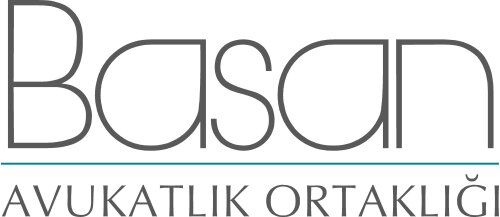Best Criminal Litigation Lawyers in Cankaya
Share your needs with us, get contacted by law firms.
Free. Takes 2 min.
List of the best lawyers in Cankaya, Turkey
About Criminal Litigation Law in Cankaya, Turkey:
Criminal Litigation in Cankaya, Turkey, similar to other areas in Turkey, is governed by the Turkish Penal Code and the Code of Criminal Procedure. These regulations define the range of offences, applicable penalties and the procedural rules for investigation, prosecution, trial, and enforcement of criminal sanctions. Turkish criminal law is based on the principle of legality, and no one can be punished for an activity that does not constitute a crime under the law.
Why You May Need a Lawyer:
Often, individuals might find themselves in situations where they need a lawyer to navigate the complexities of criminal litigation. These scenarios could include being accused of a crime, seeking to understand criminal proceedings, ensuring representation in court, or seeking an appeal against a judgment. Legal advice can be beneficial for accurate information and understanding often complex legal procedures, your rights under the law, and the potential consequences of the legal situation.
Local Laws Overview:
According to the Turkish Penal Code, there are various categories of crimes, including crimes against persons (such as assault or robbery) and crimes against property (like theft or fraud). The Code of Criminal Procedure outlines the process of investigation, indictment, trial, and appeal. The accused has the right to a fair trial, to be informed of the charges, to present a defence, and to be represented by a lawyer. The prosecution must prove beyond reasonable doubt that the accused committed the crime. In Cankaya, as well as the rest of Turkey, the process is overseen by state prosecutors and professional judges.
Frequently Asked Questions:
1. What is the role of a defense lawyer in a criminal case?
A defense lawyer represents the accused person in court, provides advice regarding the case, communicates with the prosecutor to negotiate pleas or lesser charges, and presents evidence to defend the client.
2. What are the stages of criminal litigation?
The stages include investigation, indictment, arraignment, discovery, plea bargaining, trial, verdict, and potentially, appeal.
3. Can I represent myself in court in criminal cases?
Yes, self-representation is allowed. However, it is advisable to have a lawyer due to the complexities of criminal litigation and the potential risks involved.
4. How long does a criminal case generally last?
The duration of a criminal case depends on several factors including the nature of the charges, the complexity of the case, and the court's calendar. It may take several months to years.
5. What are the penalties for criminal offences in Turkey?
Penalties for criminal offences can range from fines to imprisonment, depending on the seriousness of the offence, as per the Turkish Penal Code.
Additional Resources:
For additional information and support, consider reaching out to the local branch of the Turkish Bar Association, the Ministry of Justice, and non-governmental organizations that provide legal aid. Criminal Litigation textbooks and online resources, including Turkish legal websites and forums can be of value as well.
Next Steps:
If you require legal assistance for criminal litigation in Cankaya, Turkey, consider first consulting a legal expert or a law firm specializing in Criminal law. Ensure that you have all the relevant documents and be as transparent as possible about your legal situation. It is essential to understand your rights and obligations under the law.
Lawzana helps you find the best lawyers and law firms in Cankaya through a curated and pre-screened list of qualified legal professionals. Our platform offers rankings and detailed profiles of attorneys and law firms, allowing you to compare based on practice areas, including Criminal Litigation, experience, and client feedback.
Each profile includes a description of the firm's areas of practice, client reviews, team members and partners, year of establishment, spoken languages, office locations, contact information, social media presence, and any published articles or resources. Most firms on our platform speak English and are experienced in both local and international legal matters.
Get a quote from top-rated law firms in Cankaya, Turkey — quickly, securely, and without unnecessary hassle.
Disclaimer:
The information provided on this page is for general informational purposes only and does not constitute legal advice. While we strive to ensure the accuracy and relevance of the content, legal information may change over time, and interpretations of the law can vary. You should always consult with a qualified legal professional for advice specific to your situation.
We disclaim all liability for actions taken or not taken based on the content of this page. If you believe any information is incorrect or outdated, please contact us, and we will review and update it where appropriate.












